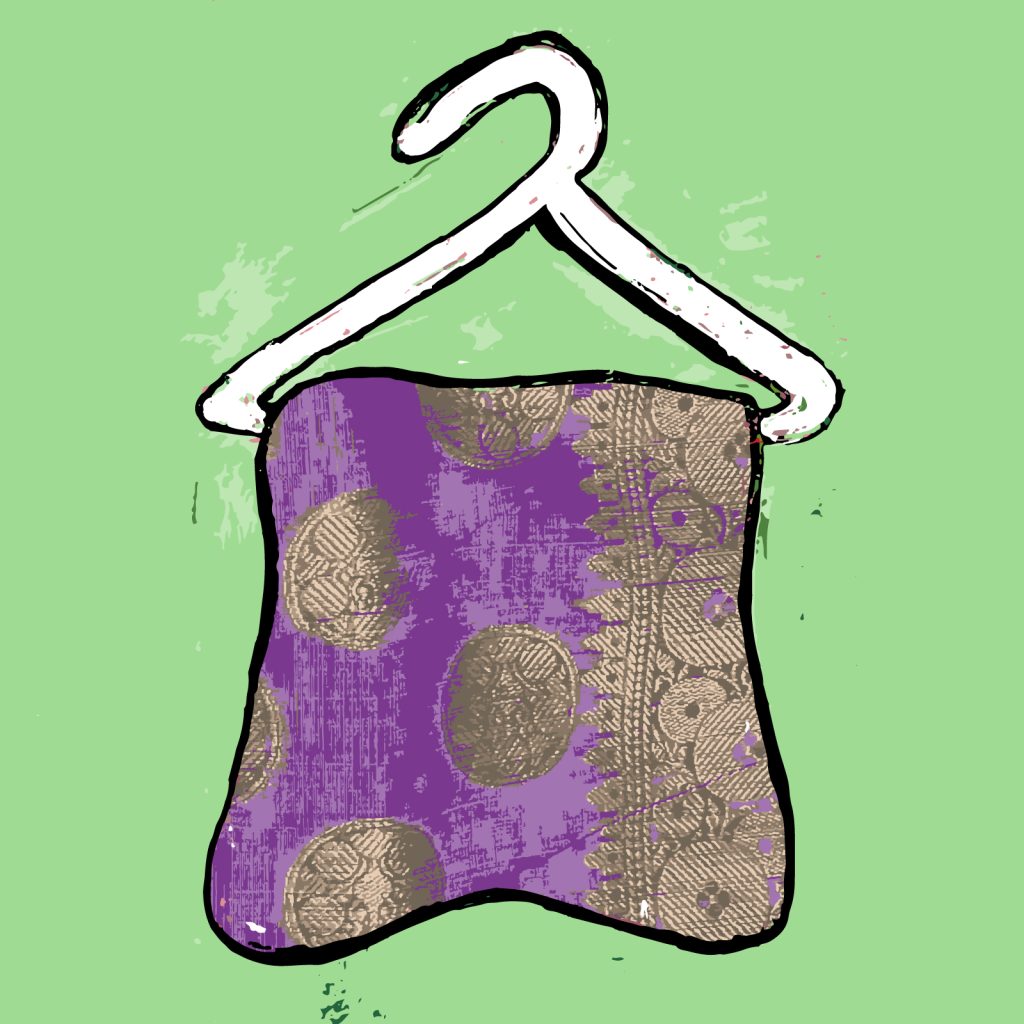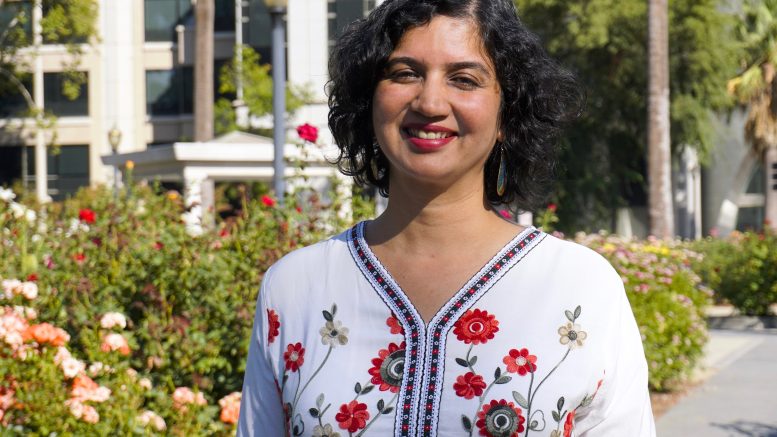‘Gulabi Stories’ uncovers taboo topics and promotes healing within South Asian communities
By Marie-Elena Schembri
Farrah Dalal’s story is rooted in a “transformative experience” she had at 5 years old. Having grown up within the South Asian diaspora, Dalal describes her experience of being bullied because of her family’s place within the Indian caste system in her story “In The Red.”
“It was at this moment I knew something was not right, and it would take several more years of harassment and abuse to understand that I belonged to a cultural system of oppression,” Dalal wrote.
Dalal’s story is one of dozens from the South Asian diaspora that is being brought to light through Meghna Bhat’s project, “Gulabi Stories.” With what she calls a “healing initiative,” Bhat, a Sacramento resident, is not just looking at ways to share narratives that are missing from mainstream culture, but she’s also hoping to inspire community healing around topics that are often considered taboo within South Asian communities.
The project offers South-Asian women, including trans women, nonbinary, and gender nonconforming individuals, a digital platform to share personal narratives around experiences with topics like sexuality, identity, domestic abuse, mental health, motherhood, infertility, racial or class stereotyping, and acculturation.
“Gulabi,” the Hindi word for the color pink, is used to symbolize the complexity of female gender identity. Long hailed as the quintessential color for girls, “Gulabi Stories” reclaims the hue through a satirical approach to dismantling traditional gender roles, while embracing its sensuality and ability to evoke feelings of love and confidence.
Bhat is a first-generation Indian immigrant and a storyteller, educator and consultant. She holds a Ph.D. in criminology, law and justice, and works in sexual violence prevention education and social justice initiatives. In graduate school at the University of Illinois at Chicago, Bhat gave her dissertation on the violence against women that is perpetuated within “Bollywood” Indian cinema, and has long had an interest in stories and how they affect us.
From her own struggles as an immigrant brown woman and survivor of gender violence, who also deals with chronic health issues, Bhat saw a need for conversations in her community around healing and stigmatized subjects like mental and physical health. Inspired by storytelling workshops she had taken with StoryCenter in Berkeley and Capital Storytelling in Sacramento, Bhat imagined a project to “create community connections” for women of the South Asian diaspora and provide space for conversations around often ignored topics
Bhat’s project was one of 45 selected to receive a $10,000 individual artist grant from Sacramento City’s Office of Arts & Culture’s Seeding Creativity program. Funded by the National Endowment for the Arts by way of its American Rescue Plan, the program was intended to offset the pandemic’s impact on the creative arts sector.
Through online workshops facilitated by Bhat and a team of community advisers and creative consultants, around 40 individuals have crafted and shared stories with others from both similar and sometimes very different cultures within the South Asian diaspora, which includes those with origins or familial roots in Afghanistan, Bangladesh, Bhutan, India, Maldives, Nepal, Pakistan and Sri Lanka. Not all participants opted to publish their finished stories on the “Gulabi Stories” website and Instagram, but each had the opportunity to share their experiences, talk about their stories, and get feedback from peers.

Though the final goal of the project is to share stories with the broader public online, for Bhat, the element of community healing around these taboo topics is of greater significance.
“I think the bigger vision is, I’m hoping that these stories slowly dismantle or break those barriers,” Bhat said, referring to topics such as divorce, sexuality, and gender identity. She added that supporting a family member’s joy and “listening to their stories and creating that space should be more important” than concerns over what others, relatives included, might think.
Surabhi Jain, an Indian-born Canadian, wrote about her struggle with infertility for “Gulabi Stories.” In Jain’s story, her aunties and mom are the heroes, helping her to embrace her identity as an Indian woman who will never have children. According to Jain, many are not so lucky to have this support.
“I know women whose relationships and family life have been spoiled because they couldn’t have a kid,” Jain said. “And I think when that becomes a central message that motherhood is that important, or actually having a child is that important. … I think it’s important to have messaging that says, while it might be important, it has to be on your terms.”
Jain’s story is about “really identifying and championing the women that supported me and giving hope to other women,” not just the pain of her experience.
This element of hope is an important function of the project. “‘Gulabi Stories’ is not about just addressing intergenerational trauma and conflicts, but it’s also about capturing intergenerational joy and wisdom,” Bhat said.
For 23-year-old Nepali storyteller Deeya Amatya, writing her story showed her just how far she has come. Her story takes place when she was just 5 years old, an immigrant who didn’t speak the language or understand the culture and struggled to feel confident around her peers in school.
For Amatya, having representation for Nepali voices was a key draw to this project. The small country is often overshadowed and underrepresented compared to its much larger South Asian neighbors, like India and Afghanistan.
“I feel like many times our mainstream narratives are including the dominant groups within even the larger South Asian diaspora,” Bhat said. “We end up blending all South Asian identities and lived experiences under one umbrella when it’s not true. We are not a monolith. We have such unique levels of lived experiences. We have nuances and complexities even within the same, even among the people having the same ancestral origin.”
The project is nearing completion, with more stories published on the site every week through the project’s completion date Oct. 31. Bhat is already thinking about opportunities to expand the “Gulabi Stories” model and continue the conversation around topics related to culture and healing.
This story is part of the Solving Sacramento journalism collaborative. Solving Sacramento is supported by funding from the James Irvine Foundation and Solutions Journalism Network. Our partners include California Groundbreakers, Capital Public Radio, Outword, Russian America Media, Sacramento Business Journal, Sacramento News & Review, Sacramento Observer and Univision 19.


Be the first to comment on "Storytelling project uplifts the voices of South Asian women"